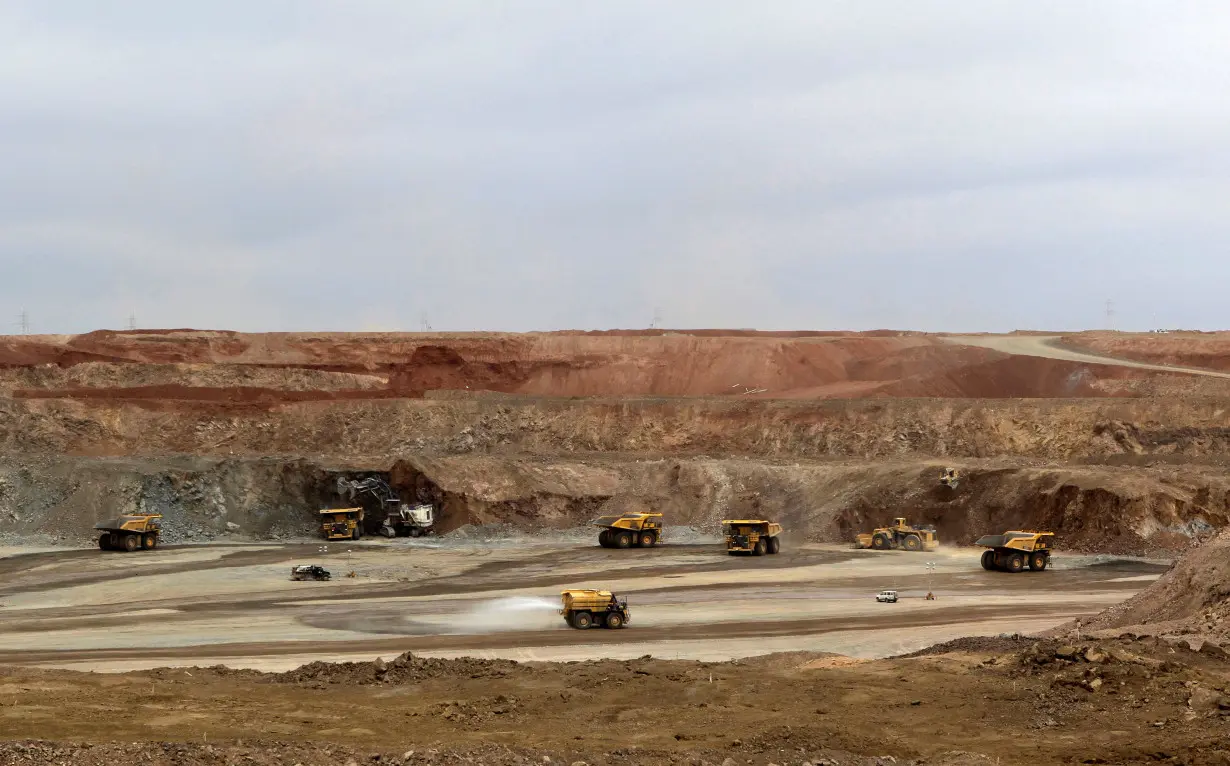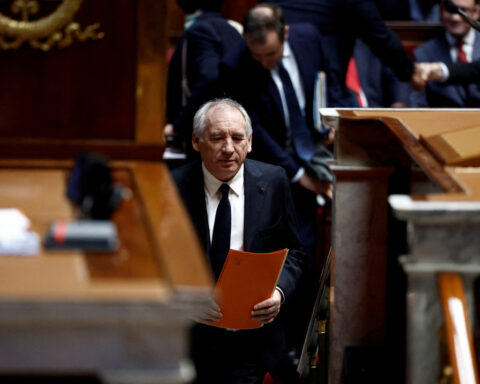MELBOURNE (Reuters) - Global miner Rio Tinto is negotiating with workers at its Oyu Tolgoi copper operations in Mongolia to avert further industrial action over a sharp drop in wages that triggered an earlier strike in May.
Rio Tinto moved underground at Oyu Tolgoi, one of the world's largest copper-gold deposits, in March last year and is ramping up to produce around 500,000 tons of copper a year from 2028 onwards.
The copper production would be worth some $5 billion annually at current prices, which have retreated below $10,000 a ton from a record near $11,000 a ton in May.
Changes in Mongolia's Labor Law, which came into effect at the start of 2022, prompted Rio Tinto to recalculate employee allowances.
Wages have dropped by as much as 80%, according to non-governmental organisation OT Watch, which is in contact with the mine workers.
"A request to start negotiations was sent and OT is to reply by July 5, 2024. Another strike is possible if 70% of key demands on wages and 50% of other demands are not met," OT Watch Director Sukhgerel Dugersuren told Reuters via email.
"The key demand of workers is to bring wages to similar levels paid for the same type of work performed in other Rio Tinto mines," OT Watch said in a briefing note shared with Reuters, adding that workers were being paid a "miserable $1,596 per month for work far from home".
In comparison, an average Australian monthly mining salary sits at A$10,413 ($6,919), according to government data.
During the May 10-17 strike, according to the workers all open pit and underground mining was stopped, which may have led to some structural issues underground, OT Watch said.
"The stand-down did not affect mine operations and there was no material impact to mine production," Rio Tinto said, adding that the strike was limited to a "small group of employees" who was "seeking to understand the impact of changes to the average salary components".
"The talks are ongoing and a new collective agreement is expected to be negotiated in the future," the miner added.
($1 = 1.5049 Australian dollars)
(Reporting by Melanie Burton; Editing by Sherry Jacob-Phillips)

 Edmunds highlights the top car-tech trends from CES 2025
Edmunds highlights the top car-tech trends from CES 2025
 Joann files for bankruptcy — again
Joann files for bankruptcy — again
 German economy, Europe’s largest, shrinks for second straight year
German economy, Europe’s largest, shrinks for second straight year
 Australian Open: Last year’s finalist Zheng Qinwen stunned in biggest upset so far
Australian Open: Last year’s finalist Zheng Qinwen stunned in biggest upset so far
 Comoros ruling party wins parliamentary elections, opposition rejects results
Comoros ruling party wins parliamentary elections, opposition rejects results
 Confused about all the tax changes in the past decade? Just wait
Confused about all the tax changes in the past decade? Just wait
 US inflation likely remained elevated last month, threatening interest rate cuts
US inflation likely remained elevated last month, threatening interest rate cuts
 Coors Light is changing its name
Coors Light is changing its name
 Tiger Woods’ son Charlie chuckles while watching his dad suffer heavy defeat in TGL debut
Tiger Woods’ son Charlie chuckles while watching his dad suffer heavy defeat in TGL debut








